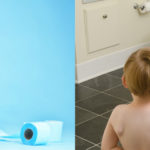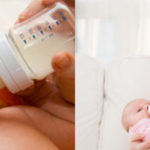Breast feeding is a very rewarding experience for the mother. It can be challenging too, especially for the first-time mom.
The decision to breast-feed is one that most pediatricians encourage and actively support. However, not every mother eventually ends up breast feeding their children, and some that do so, do it for varying lengths of time.
We encourage every mother to make the decision to breast feed. We also understand that some mothers are not able to breast-fed for various reasons. For those mothers, there are several alternatives out there that will provide your offspring with adequate nutrition.
Before you choose not to breast feed, consider the following advantages of breast feeding.
Advantages to the BABY
Breastfeeding is good for your baby because:
- It provides warmth and closeness. The physical contact helps create a special bond between you and your baby.
- Human milk has many benefits.
- It’s easier for your baby to digest.
- It doesn’t need to be prepared.
- It’s always available and at the right temperature
- It has all the nutrients, calories, and fluids your baby needs to be healthy.
- It has growth factors that ensure the best development of your baby’s organs.
- It has antibodies (that formulas don’t have) that protect your baby from a variety of diseases and infections. Because of these protective substances, breast fed children are less likely to have
- Ear infections
- Diarrhea
- Pneumonia, wheezing, and bronchiolitis
- Other bacterial and viral infections, such as meningitis
- Research also suggests that breastfeeding may help to protect against obesity, diabetes, sudden infant death syndrome (SIDS), and some cancers.
Advantages to the MOTHER:
Breastfeeding is good for your health because it helps:
- Release hormones in your body that promote mothering behavior.
- Return your uterus to the size it was before pregnancy more quickly.
- Burn more calories, which may help you lose the weight you gained during pregnancy.
- Delay the return of your menstrual period to help keep iron in your body.
- Reduce the risk of ovarian cancer and breast cancer.
- Keep bones strong, which helps protect against bone fractures in older age.
Importance of Good Positioning and Latch-on during Breast feeding
There are various factors that can determine whether you have a successful breast feeding experience or not. One of them is positioning. The other is proper latch-on. You can adopt one of many positions during breast-feeding depending on your preference and what suits you and your baby best. The importance of this cannot be over emphasized, because done wrongly, it can frustrate you and your baby.
Useful Breast Feeding Tips
- Nurse early and often
- Nurse with the nipple and areola fully in the baby’s mouth, not just the nipple
- Breast feed on demand as much as possible






